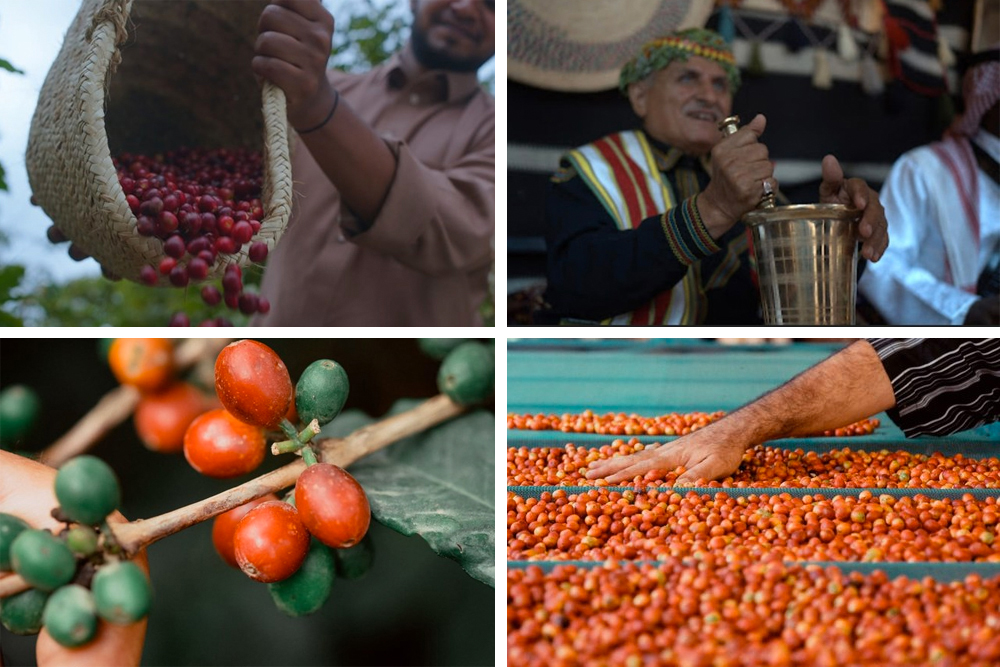
Keeping traditional pots of coffee consistently hot and offering “Finjans,” small cups, at social events have made coffee a key part of Arabic culture for a long time. Saudi Arabia, however, is raising the bar and elevating the culture of coffee to new heights.
The nation cultivates one of the finest coffees in the world, known as Khawlani, and is often regarded as the best Arabica variety. It has a nuanced tone, low acidity, and is a little sweeter than conventional coffee.

Reflecting Saudi Arabia's strong sense of tradition and hospitality the bean bears the name of the ancient Khawlan tribe, who have dwelt in Jazan's mountain terrain for 500 years and have been farming the bean.
With the introduction of the PIF-owned Saudi Coffee Company (SCC) last year, which is investing in every aspect of coffee production from crop to cup, Saudi Arabia's specialty coffee will soon be accessible to a larger audience.

PIF established SCC to localize coffee-related sectors and increase their contribution to Saudi Arabia's domestic product through sustainable agricultural development initiatives in the Jazan area as part of Vision 2030's goal to diversify the economy with a focus on sustainability.
SCC's ultimate goal is to boost Saudi coffee output by generating employment at every level of the supply chain with a sizable investment over the next ten years.
SCC is improving the technology used in coffee production and retraining local farmers while adopting a sustainable approach across all phases of production, including distribution and marketing.
SCC is opening an academy to teach and qualify Saudi talent and provide them with all the information they need by assisting them in establishing their own enterprises and plantations in Jazan in order to further benefit the farmers.

The business also seeks to increase public understanding of the history and tradition of Saudi Arabian coffee, including the many varieties of coffee, their origins, flavors, and preparation techniques. Several regions of Saudi Arabia use different techniques for growing coffee and preparing it. Although all ground Saudi coffee beans, cardamom, and saffron are required for preparation, the ingredients for making coffee differ.
Young people in the local coffee industry will have thousands of job prospects thanks to SCC, which also supports international trade in Jazan coffee.
SCC's support of Saudi Arabia's coffee industry will not only pave the way for a more viable business domestically, but is also poised to woo the rest of the globe with its specialty coffee due to coffee's ability to unite people and cultures and boost economies.

















